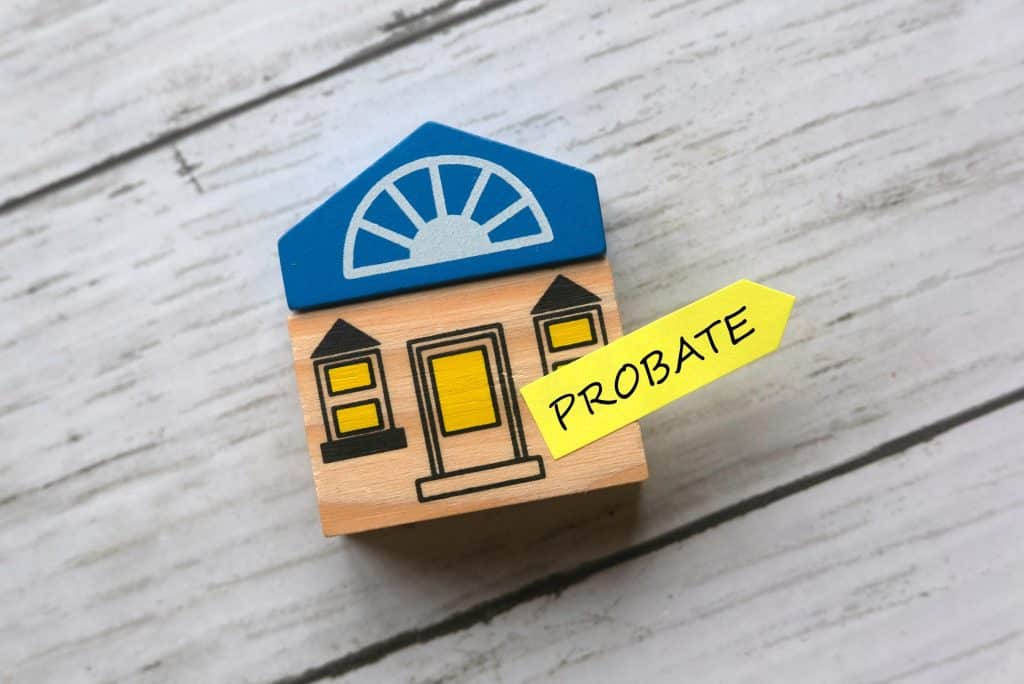The process of probate is is conducted after a person dies. Their property, money, financial affairs and possessions are sold or transferred, any outstanding debts are settled and whatever’s left is then paid to their beneficiaries.
This process takes place regardless of whether or not there is a valid will in place. If there is no will and therefore no named executor, a slightly different probate procedure applies.
What happens in probate when there is no will?
The actual process of estate administration remains the same regardless of whether or not the deceased left a valid will. It rarely takes any longer for an estate to be administered when someone dies either with or without a valid will being in place.
When someone dies without a will they are said to have died intestate. When this is the case, the deceased’s estate will then be distributed under the terms of the law. This means that the distribution of assets may not fully align with the wishes of the deceased or those closest to them. This can add complexity to the administration process and, in some cases, can lead to disputes which can drag on for a considerable amount of time.
For this reason, legal professionals strongly advise their clients to ensure that they have a will in place if they own property, have a family or have substantial assets.
Can you get probate without a will?
If a person dies without a valid will an application will need to be made to the court to enable the legal administration process to begin. The person responsible for carrying out the administration is known as the administrator. In order to carry out their duties, they will need to apply for a grant of letters of administration
This is a document that’s issued by the probate registry giving the administrator the legal authority they need to access accounts, handle property and carry out their duties associated with the estate. It fulfils the same role as a grant of probate which is issued when there is a will with a named executor.
The grant of letters of administration will be required to deal with a wide range of assets with many banks setting a threshold as low as £5,000. The only time this will not be required is if the person who died had very few assets. Until the grant of letters of administration is received, bank accounts cannot be closed down and property cannot be sold.
When this application is made you will usually need to provide the original death certificate, inheritance tax forms and a fee to the Probate Registry.
To apply for a letter of administration you will need to have a range of information at hand about the deceased person, what they owned, its value and the value of any outstanding debts. This information will be required in order to complete the Inheritance Tax returns as well as to calculate any Inheritance Tax that may need to be paid to HM Revenue & Customs.
The length of time that it can take to obtain a grant of letters of administration can vary depending on the size and complexity of the estate. It will also be impacted by the need to carry out any searches and who the surviving relatives of the deceased person are.
Who gets probate when there is no will?
If a person dies without leaving a valid will the law requires that their estate is shared out according to the rules of intestacy. Anyone who dies without a valid will being in place is called an intestate person. If the person died has a surviving wife, husband or civil partner they will in most cases be both the administrator of the will and the main beneficiary.
Probate in these instances will usually be straightforward. If, however, the person who died has more distant relatives or relatives that can’t be found or easily identified, then the process can be delayed considerably.
Before the grant of letters of administration is applied for the correct administrator will need to be identified according to the laws of intestacy.
Who is the next of kin when someone dies without a will?
The next of kin rules when it comes to intestacy begin with the wife, husband or civil partner. This only applies if partners have entered into a legal relationship, through marriage or a civil partnership. The surviving partner of a couple who has lived together does not automatically inherit even if they have lived together for many years. Also, if you have separated and divorced, then partners will not inherit under the rules of intestacy.
The children of the intestate person will inherit if there is no surviving married or civil partner. If a partner does survive they will only inherit some of the estate if it is valued at higher than a £270,000
If there is no surviving married or civil partner the children of the person who has died intestate will inherit the entire estate. If there is more than one child, the estate will be divided equally between them.
In some circumstances, grandchildren or great-grandchildren can inherit from the estate of an intestate person, as too can siblings and nephews or nieces. If no partner, children, nephews or nieces or grandchildren exist, then grandparents, uncles and aunts and even half-uncles and aunts may come into the equation.
Expert help and guidance
The rules regarding who is next of kin and who should be the administrator of an intestate person’s estate are complex. If you have any doubts or questions about what happens when someone dies intestate, or if you are the next of kin of someone who has died without a will, then professional support and guidance can be helpful.
Our experienced wills and probate team are always happy to provide advice and guidance about the probate process. Call 01244 506 444 or email info@fjsolicitors.co.uk to book a free consultation.






